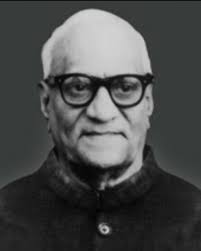The Role and Importance of the Vice President of India

Introduction
The position of the Vice President of India holds considerable significance in the nation’s governance structure. Serving as the second-highest official in the country, the Vice President has crucial responsibilities that extend beyond mere ceremonial functions. The role is pivotal in maintaining the continuity of governance and acting as the presiding officer of the Rajya Sabha, the upper house of Parliament.
Current Context
As of 2023, Jagdeep Dhankhar serves as the Vice President of India, having taken office on August 11, 2022. His background in law and experience as a politician have shaped his approach towards enhancing the role of the Vice President in legislative processes. The current political landscape emphasizes the need for effective coordination between the executive and legislative branches, making the Vice President’s role more critical.
Responsibilities
The primary responsibilities of the Vice President of India include:
- Presiding Officer of Rajya Sabha: The Vice President chairs the sessions of the Rajya Sabha, ensuring that debates run smoothly and that parliamentary rules are upheld.
- Acting President: In the event of the President’s absence due to illness or foreign travel, the Vice President assumes the responsibilities of the President.
- Advisory Role: The Vice President often plays a crucial part in advising the President on various issues related to governance and national interest.
Over the years, the role has evolved, particularly with the increasing complexity of governance. Recent discussions in Parliament have raised points regarding how the Vice President can facilitate more direct communication between party leaders and help in resolving legislative disputes.
Impact and Significance
The significance of the Vice President’s role cannot be understated, especially in a time when parliamentary democracy requires effective leadership and mediation. The Vice President’s ability to navigate party politics and foster collaboration among diverse political viewpoints has far-reaching implications for legislative success and governance stability.
Conclusion
As the nation moves forward, the role of the Vice President of India is expected to gain further prominence in the political arena. Ongoing discussions and potential reforms could lead to an even more active participation of the Vice President in shaping national policies. For citizens, understanding the functions and challenges of this office is essential in appreciating the broader political landscape and its impact on governance.









